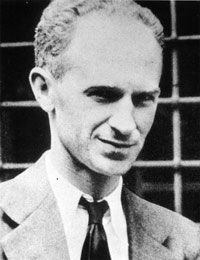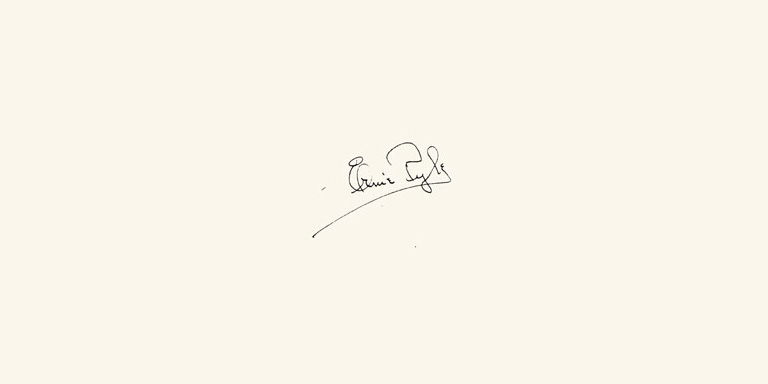In his last published column, which was issued posthumously, Pyle honors the memory of a fellow war correspondent.
OKINAWA, April 28, 1945 – This is a column about Fred Painton, the war correspondent who dropped dead on Guam a short time ago.
Fred wrote war articles for Reader’s Digest and many other magazines. He even gambled his future once writing a piece for the Saturday Evening Post about me.
Fred was one of the little group of real old-timers in the European war. He was past forty-nine and an overseas veteran of the last war. His son is grown and in the Army. Fred had seen a great deal of war for a man his age.
He was just about to start back to America when he died. He had grown pretty weary of war. He was anxious to get home to have some time with his family.
But I’m sure he had no inkling of death, for he told me in Guam of his postwar plans to take his family and start on an ideal and easy life of six months in Europe, six in America. He had reached the point where life was nice.
*
Fred Painton was one of the modest people; I mean real down-deep modest. He had no side whatever, no ax to grind, no coy ambition.
He loved to talk and his words bore the authority of sound common sense. He had no intellectualisms. His philosophy was the practical kind. He was too old and experienced and too wise in the ways of human nature to belittle his fellow man for the failures that go with trying hard.
Fred didn’t pretend to literary genius but he did pride himself on a facility for production. He could get a thousand dollars apiece for his articles and he wrote a score of them a year. And his pieces, like himself, were always honest. I’ve known him to decline to do an assignment when he felt the subject prohibited his doing it with complete honesty.
Fred’s balding head and crooked nose, his loud and friendly nasal voice, his British Army trousers and short leggings were familiar in every campaign in Europe.
He took rough life as it came and complained about nothing, except for an occasional bout with the censors. And even there he made no enemies for he was always sincere.
There were a lot of people Fred didn’t like, and being no introvert everybody within earshot knew whom he didn’t like and why. And I have never known him to dislike anyone who wasn’t a phony.
*
Fred and I have traveled through lots of war together. We did those bitter cold days, early in Tunisia, and we were the last stragglers out of Sicily.
We both came home for short furloughs after Sicily. The Army provided me with a powerful Number Two air priority, while Fred had only the routine Number Three.
We left the airport at Algiers within four hours of each other on the same morning. I promised Fred I would call his wife and tell her he would be home within a week.
When I got to New York I called the Painton home at Westport, Connecticut. Fred answered the phone himself. He had beat me home by three days on his measly little priority! He never got over kidding me about that.
*
As the war years rolled by we have become so indoctrinated into sudden and artificially imposed death that natural death in a combat zone seems incongruous, and almost as though the one who died had been cheated.
Fred had been through the mill. His ship was torpedoed out from under him in the Mediterranean. Anti-aircraft fire killed a man beside him in a plane over Morocco.
He had gone on many invasions. He was in Cassino. He was ashore at Iwo Jima. He was certainly living on borrowed time. To many it seems unfair for him to die prosaically. And yet . . .
The wear and the weariness of war is cumulative. To many a man in the line today fear is not so much of death itself, but fear of the terror and anguish and utter horror that precedes death in battle.
I have no idea how Fred Painton would have liked to die. But somehow I’m glad he didn’t have to go through the unnatural terror of dying on the battlefield. For he was one of my dear friends and I know that he, like myself, had come to feel that terror.



